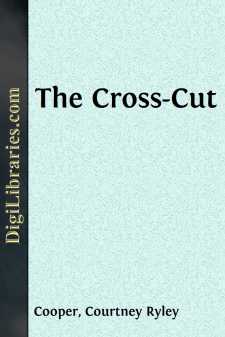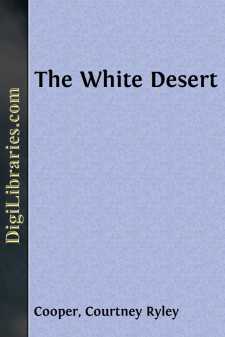Categories
- Antiques & Collectibles 13
- Architecture 36
- Art 48
- Bibles 22
- Biography & Autobiography 813
- Body, Mind & Spirit 142
- Business & Economics 28
- Children's Books 17
- Children's Fiction 14
- Computers 4
- Cooking 94
- Crafts & Hobbies 4
- Drama 346
- Education 46
- Family & Relationships 57
- Fiction 11829
- Games 19
- Gardening 17
- Health & Fitness 34
- History 1377
- House & Home 1
- Humor 147
- Juvenile Fiction 1873
- Juvenile Nonfiction 202
- Language Arts & Disciplines 88
- Law 16
- Literary Collections 686
- Literary Criticism 179
- Mathematics 13
- Medical 41
- Music 40
- Nature 179
- Non-Classifiable 1768
- Performing Arts 7
- Periodicals 1453
- Philosophy 64
- Photography 2
- Poetry 896
- Political Science 203
- Psychology 42
- Reference 154
- Religion 513
- Science 126
- Self-Help 84
- Social Science 81
- Sports & Recreation 34
- Study Aids 3
- Technology & Engineering 59
- Transportation 23
- Travel 463
- True Crime 29
The Cross-Cut
Categories:
Description:
Excerpt
CHAPTER I
It was over. The rambling house, with its rickety, old-fashioned furniture—and its memories—was now deserted, except for Robert Fairchild, and he was deserted within it, wandering from room to room, staring at familiar objects with the unfamiliar gaze of one whose vision suddenly has been warned by the visitation of death and the sense of loneliness that it brings.
Loneliness, rather than grief, for it had been Robert Fairchild's promise that he would not suffer in heart for one who had longed to go into a peace for which he had waited, seemingly in vain. Year after year, Thornton Fairchild had sat in the big armchair by the windows, watching the days grow old and fade into night, studying sunset after sunset, voicing the vain hope that the gloaming might bring the twilight of his own existence,—a silent man except for this, rarely speaking of the past, never giving to the son who worked for him, cared for him, worshiped him, the slightest inkling of what might have happened in the dim days of the long ago to transform him into a beaten thing, longing for the final surcease. And when the end came, it found him in readiness, waiting in the big armchair by the windows. Even now, a book lay on the frayed carpeting of the old room, where it had fallen from relaxing fingers. Robert Fairchild picked it up, and with a sigh restored it to the grim, fumed oak case. His days of petty sacrifices that his father might while away the weary hours with reading were over.
Memories! They were all about him, in the grate with its blackened coals, the old-fashioned pictures on the walls, the almost gloomy rooms, the big chair by the window, and yet they told him nothing except that a white-haired, patient, lovable old man was gone,—a man whom he was wont to call "father." And in that going, the slow procedure of an unnatural existence had snapped for Robert Fairchild. As he roamed about in his loneliness, he wondered what he would do now, where he could go; to whom he could talk. He had worked since sixteen, and since sixteen there had been few times when he had not come home regularly each night, to wait upon the white-haired man in the big chair, to discern his wants instinctively, and to sit with him, often in silence, until the old onyx clock on the mantel had clanged eleven; it had been the same program, day, week, month and year. And now Robert Fairchild was as a person lost. The ordinary pleasures of youth had never been his; he could not turn to them with any sort of grace. The years of servitude to a beloved master had inculcated within him the feeling of self-impelled sacrifice; he had forgotten all thought of personal pleasures for their sake alone. The big chair by the window was vacant, and it created a void which Robert Fairchild could neither combat nor overcome.
What had been the past? Why the silence? Why the patient, yet impatient wait for death? The son did not know. In all his memories was only one faint picture, painted years before in babyhood: the return of his father from some place, he knew not where, a long conference with his mother behind closed doors, while he, in childlike curiosity, waited without, seeking in vain to catch some explanation....



